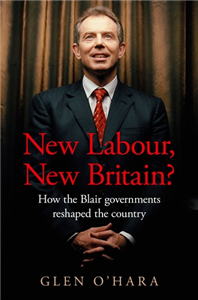Humanities & Social Sciences
September 2008
Economic policy
Available in paperback for the first time, this book is the third in the three volume set The Labour governments 1964-1970 and concentrates on Britain's economic policy under the Labour governments in the 1960s. It assesses the origins, development and outcomes of the attempts made by the 1964-1970 Labourgovernments under Harold Wilson to modernise the British economy. This is the first comprehensive and archivally-based work to offer a detailed study of this modernisation project. The book places the project in the context of Labour's economic ideas as they had developed since the 1940s as well as the economic legacy they inherited from the previous thirteen years of Conservative rule. After outlining this context and providing a summary narrative of economic policy over this period, the international aspect of Labour's approach to the economy is analysed. The core of the book then goes on to look in detail at the policies directly concerned with modernisation. Following the agenda set by the national plan of 1965, policies on planning, investment and the firm, technical change, the labour market and the nationalised industries are all analysed. In addition, the productivity campaign of the late 1960s is shown to have encapsulated many of the underlying ideas but also many of the problems of Labour's approach to economic policy. The final section of the book asks how the pursuit of modernisation affected Labour's pursuit of "social justice", before offering an overall assessment of Labour's period of office. The book will be of special interest to contemporary historians, economic historians and those interested in the history of the Labour party. Together with the other books in the series, on domestic policy and international policy, it provides a complete picture of the development of Britain under the premiership of Harold Wilson. ;

























